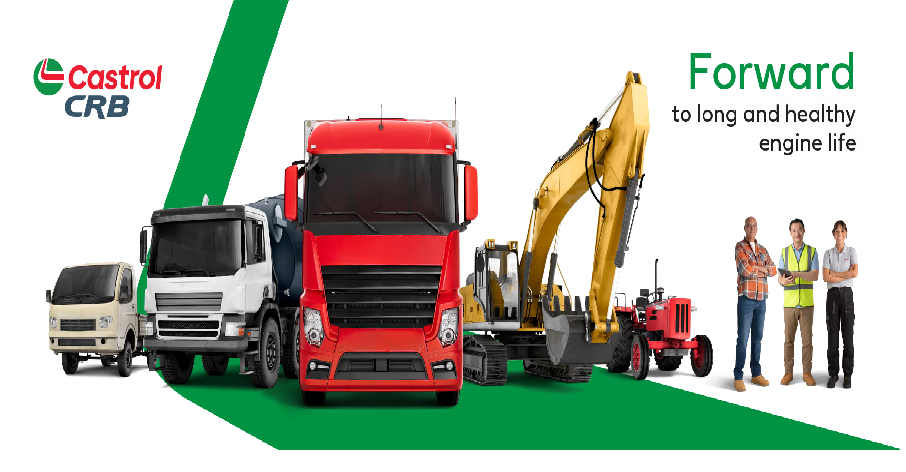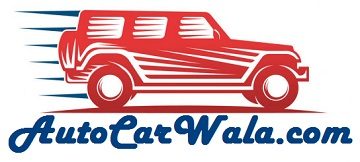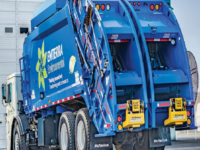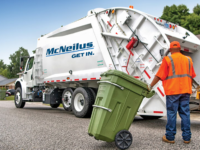Delivery Fleet Optimization: Urban Logistics Through Advanced Commercial Lubricants

Urban delivery operations have expanded dramatically with e-commerce growth, creating new demands on commercial vehicle fleets that must navigate congested city streets while meeting increasingly demanding delivery schedules. Modern delivery vehicles face unique challenges through frequent stops, varied load conditions, and urban operating environments that stress vehicle systems while requiring exceptional reliability for customer service. The lubrication requirements for delivery fleets
Urban delivery operations have expanded dramatically with e-commerce growth, creating new demands on commercial vehicle fleets that must navigate congested city streets while meeting increasingly demanding delivery schedules. Modern delivery vehicles face unique challenges through frequent stops, varied load conditions, and urban operating environments that stress vehicle systems while requiring exceptional reliability for customer service. The lubrication requirements for delivery fleets must address these diverse operating conditions while supporting the efficiency and reliability required for competitive logistics operations. Castrol commercial vehicle lubricants provide the urban-optimized protection required for successful delivery fleet operations.
Stop-and-go traffic patterns common in urban delivery create demanding conditions for engine lubrication through frequent thermal cycling and extended idle periods that can accelerate oil degradation. Delivery vehicles often spend significant time idling during loading operations or while navigating congested traffic, creating conditions that challenge conventional lubrication approaches. Advanced synthetic formulations help maintain engine cleanliness while providing consistent protection throughout diverse urban operating cycles.
Last-mile delivery efficiency directly impacts logistics profitability through its influence on route optimization, fuel consumption, and customer satisfaction metrics. Vehicle reliability becomes critical for maintaining delivery schedules while controlling operational costs in competitive logistics markets. Premium lubricants contribute to efficiency through improved fuel economy and reduced maintenance downtime that can disrupt delivery operations.
Load variation challenges delivery vehicle systems through constantly changing weight distributions and cargo characteristics that create varying stress patterns throughout daily operations. Vans and trucks handling everything from lightweight packages to heavy appliances must maintain performance despite dramatic load variations. Lubricants must provide consistent protection under these varying conditions while maintaining reliability throughout diverse delivery applications.
Environmental compliance requirements for urban delivery operations continue becoming more stringent through Low Emission Zones and environmental standards affecting commercial vehicle access in city centers. Many urban areas implement restrictions on older vehicles while encouraging adoption of cleaner technologies. Advanced lubricants support emissions compliance while helping maintain vehicle performance throughout extended service intervals.
Driver productivity and satisfaction directly relate to vehicle performance characteristics that influence delivery efficiency and workplace conditions. Reliable vehicle operation, smooth performance, and minimal breakdowns contribute to driver productivity while reducing stress associated with vehicle problems that can affect delivery schedules. These factors become particularly important in competitive employment markets where driver retention affects operational continuity.
Fleet maintenance scheduling must accommodate intensive vehicle utilization and limited downtime availability common in delivery operations. Vehicles operating multiple shifts or extended hours require maintenance approaches that minimize service interruptions while ensuring reliability throughout demanding delivery schedules. Extended drain intervals and predictive maintenance help optimize service timing while maintaining fleet availability.
Route density optimization has become increasingly sophisticated in urban delivery operations, with fleet management systems analyzing traffic patterns, delivery requirements, and vehicle performance to maximize efficiency. These optimization systems depend on reliable vehicle operation supported through proper lubrication practices that maintain performance while providing accurate data for route planning and fleet management.
Customer service expectations require delivery vehicles to operate reliably while maintaining professional appearance and environmental performance standards. Vehicle breakdowns can compromise delivery schedules while affecting customer satisfaction and competitive positioning in demanding logistics markets. Reliable vehicle operation contributes to service quality while supporting customer retention and business growth.
Technology integration in delivery fleets includes sophisticated tracking systems, route optimization software, and performance monitoring that depend on reliable vehicle operation for accurate data collection and analysis. These systems help optimize delivery efficiency while providing visibility into fleet performance and maintenance requirements throughout demanding urban operations.
Alternative fuel delivery vehicles including electric and hybrid systems create new lubrication challenges requiring specialized products and maintenance approaches. Electric delivery vehicles may eliminate traditional engine oil requirements while introducing new demands for specialized greases and thermal management fluids. These emerging technologies require innovative lubrication solutions developed specifically for next-generation delivery applications.
As urban logistics continue evolving toward greater efficiency and environmental performance, lubrication technology will play an increasingly important role in supporting reliable delivery operations that meet customer expectations while controlling costs and environmental impact throughout demanding urban delivery applications.
For more information on fleet logistics management, visit the Chartered Institute of Logistics and Transport or explore resources from the Freight Transport Association.






